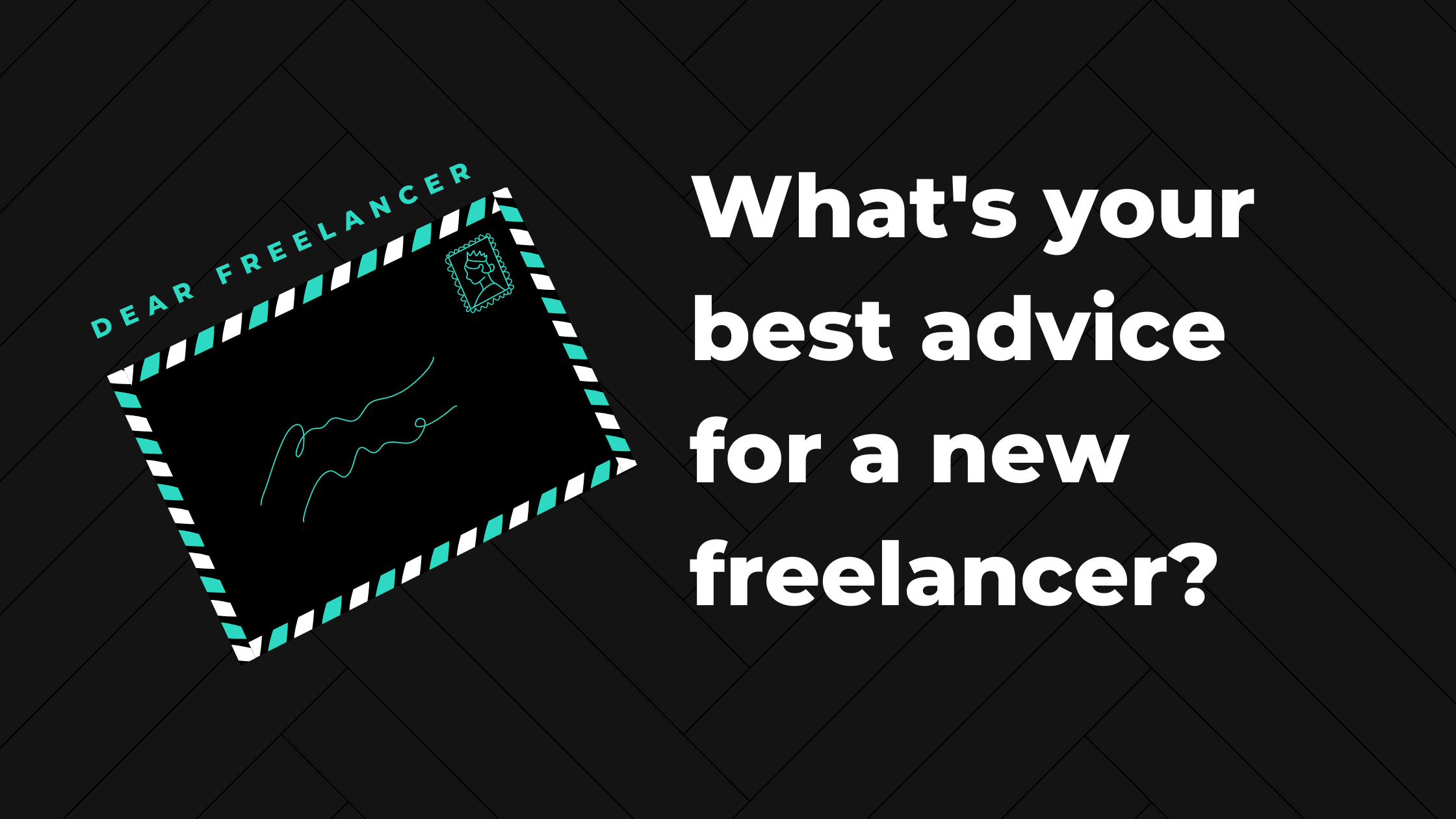There’s no ‘best’ way to freelance and there’s no such thing as universally applicable advice; anyone who says otherwise is selling something.
That means there are some things you’ll just have to learn the hard way.
But I get this question often. Every time I do, I think how in the world am I supposed to answer that?
Freelancing comprises project management, sales, accounting, networking, marketing, pricing models, the actual creative work, and a whole lot more.
It’s impossible to give a piece of advice that will prove transformative across all of these areas.
Instead, here are 29 things I wish I knew when I started freelancing nine years ago. They’re in no particular order.
I’m sorry or you’re welcome.
- Be open about your rates, both with freelancers and clients. Freelance income and rates are opaque AF; give potential clients something to work with and give other freelancers insight into what their benchmarks should be.
- Treat networking as part of the gig. Personal branding is optional; 1:1 are not. Do what works for you, but spend at least a few hours each week on something other than client work and admin.
- Underpromise, overdeliver. Good writing will only get you so far. Good communication, project management, and questions will get you the rest of the way.
- Don’t charge per word or per hour (in most cases). Charge per project. Unless that doesn’t make sense for you. In that case, charge however the heck you want, just make sure you’re not undervaluing yourself.
- Resist the urge to say ‘yes’ to everything. I know it’s tempting, but you’ll thank yourself later when you’re focused on work you enjoy and have a good balance of work instead of running yourself ragged.
- Qualify clients first and cut PITA (Pain In The A**) clients ASAFP. It’s scary to turn down work, but it’s worth it 100% of the time.
- Don’t do free work. Ever. It’s never worth it, and the clients you want to work for won’t ask for it, anyway.
- This is a business. Treat it like one. Not every single hour is billable, so work that into your pricing.
- You’re a salesperson, too. Take the time to learn sales 101: positioning, active listening, personalized follow-ups… all of it will make a difference and help you stand out.
- Sometimes working smarter means working harder. Look at each season and ask yourself what you want to accomplish, then get after it. Just don’t move the goalposts.
- Clients don’t pay writers $200/hr; but they’ll pay $1,000 for an article that takes you 5 hours. They’ll probably pay even more for a case study, so don’t sleep on value-based pricing.
- Add value wherever you can; make suggestions that are beyond the scope of the project, go above and beyond with your research, and make introductions.
- Collect proof and testimonials like they’re gold; they are. Ask for referrals when it makes sense; they’ll be your biggest source of new projects if you make it consistent.
- Don’t dream big yet; just get down and dirty in the work, first. It’s easy to make big plans and a lot harder to land your first big freelance project.
- You can make good money on execution, but it’s a lot easier when you add strategy to the mix. Get to the point where your clients can’t imagine replacing you.
- Sometimes growth means saying you can do something before you’ve ever done it. Everyone learns on the job, and freelancers shouldn’t be exempt from getting paid for it.
- Get picky—with what you work on and who you work with. The more specific you are, the more valuable your offer.
- Take time to engage with the freelancing community. You can learn a lot, and we all benefit from transparency around process, pay, clients, and experience.
- Figure out what you like to do and double down there. There’s a good chance you’ll increase your income as a result.
- Open that Google Doc as soon as you get it, just to make sure you have the right permissions and all your questions answered. That way you avoid an awkward turtle moment two weeks later when you’re actually ready to dive in.
- Don’t forget about taxes—and get professional help with them, probably.
- Other freelancers are your community, not your competition. Don’t ‘pass’ on work; ‘pass on’ work.
- If a potential client tells you it’s not the right time and to follow up in a few months: believe them, write it down, and follow up in a few months.
- Always get a contract signed first. Always. It’s just as much about setting expectations as it is about legal recourse.
- If you hear “we can’t pay that much for this project but we’ve got a ton lined up” …run far away.
- “Weird vibes” is more than a good enough reason to pass on a project. Trust your gut and all that.
- If everyone is saying ‘yes’ to your rates, it’s time to increase your rates. For that matter, try raising your rates every time you sign a new client.
- Want to get out of the ‘if I’m not working I’m not making money’ mindset? Set up a business bank account and put yourself on payroll. It’s mostly a mental trick, but it works.
- Finally, the freelancer’s golden rule: the more a client is willing to pay you, the easier they are to work with.
⭐️⭐️⭐️⭐️⭐️
The template for every freelance situation
Unlock instant access to 20+ templates designed for the trickiest freelancing situations—including an out of office template to communicate with clients effectively.


